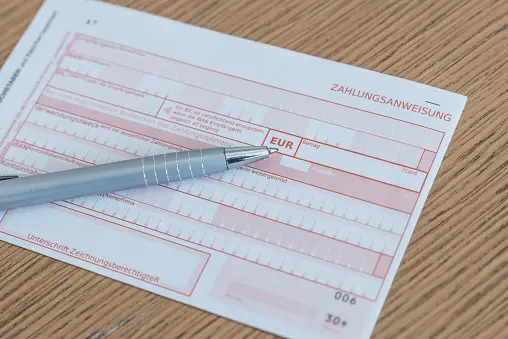Do Money Orders Have A Purchase Date On Them?
Money orders serve as secure alternatives to cash or checks for making payments or conducting financial transactions. Understanding the key details associated with money orders, including purchase dates, is essential for effective financial management. In this detailed analysis, we will explore the presence of purchase dates on money orders and the significance of this information in financial transactions.
Overview of Money Orders
Money orders are prepaid financial instruments with a specified value, making them a reliable method of payment. They are typically issued by financial institutions, post offices, or other authorized agencies and are widely used for transactions that require a guaranteed form of payment.
Key Features of Money Orders
- Prepaid: Money orders are paid for in advance, ensuring that the recipient receives the specified amount.
- Secure: Money orders are generally considered secure and are less susceptible to fraud compared to personal checks.
- Accessible: Money orders can be purchased from various locations, including banks, post offices, and retail stores.
Understanding Purchase Dates on Money Orders
The presence of a purchase date on a money order serves as a crucial piece of information that helps track the timeline and validity of the financial instrument. Let’s explore the significance of the purchase date and its implications for both purchasers and recipients of money orders.
Do Money Orders Have a Purchase Date?
Most money orders include a purchase date, which indicates the date on which the money order was bought or issued. This date is usually located on the money order itself and is an essential piece of information for various reasons:
Tracking Transactions
The purchase date helps track the timing of the financial transaction and provides a record of when the money order was acquired. This information can be useful for financial record-keeping and reconciliation.
Validity Period
The purchase date establishes the starting point for the validity period of the money order. Understanding when the money order was purchased is crucial for both the purchaser and the recipient to ensure timely redemption within the specified timeframe.
Importance of Purchase Dates
The purchase date on a money order carries several significant implications for individuals involved in the transaction process. Let’s explore the key reasons why the purchase date matters:
Proof of Ownership
The purchase date serves as proof of ownership of the money order. It indicates that the individual whose name appears on the money order acquired it on a specific date, reinforcing the legitimacy of the financial instrument.
Verification of Validity
By referencing the purchase date, both the purchaser and the recipient can verify the validity of the money order. Ensuring that the money order is redeemed within the appropriate timeframe is crucial to prevent expiration and potential complications.
Understanding Money Order Validity
Money orders typically have a validity period during which they can be cashed or deposited. The duration of validity varies depending on the issuer and specific policies. The purchase date plays a key role in determining the timeframe within which the money order remains valid.
Validity Period Variations
Different issuers may have varying validity periods for their money orders. Understanding the validity period associated with a specific money order is essential for timely redemption and successful utilization of the funds.
Managing Money Orders Effectively
To ensure smooth and efficient handling of money orders, individuals should pay attention to the purchase date and adhere to the following best practices:
Prompt Redemption
Upon receiving a money order, recipients should promptly cash or deposit it to avoid any issues related to expiration. Prompt redemption helps ensure that the funds are accessed within the validity period.
Record-Keeping
Keeping a record of the purchase date and other relevant details related to the money order transaction is recommended for financial documentation and tracking purposes. Maintaining organized records aids in financial management.
Conclusion: Significance of Purchase Dates on Money Orders
The presence of a purchase date on money orders plays a crucial role in tracking transactions, verifying validity, and ensuring timely redemption of funds. Understanding the implications of the purchase date empowers individuals to manage money orders effectively and navigate financial transactions with clarity and confidence.
Summary
Money orders typically include a purchase date, which serves as a cornerstone of the transaction process. By recognizing the importance of the purchase date, individuals can engage in secure and efficient financial dealings, leveraging money orders as reliable instruments for payment.
This in-depth analysis has shed light on the significance of purchase dates on money orders, emphasizing their role in transaction tracking, validity verification, and overall financial management. Adhering to best practices related to purchase dates contributes to a seamless and secure money order experience for both purchasers and recipients.
click here to visit website

